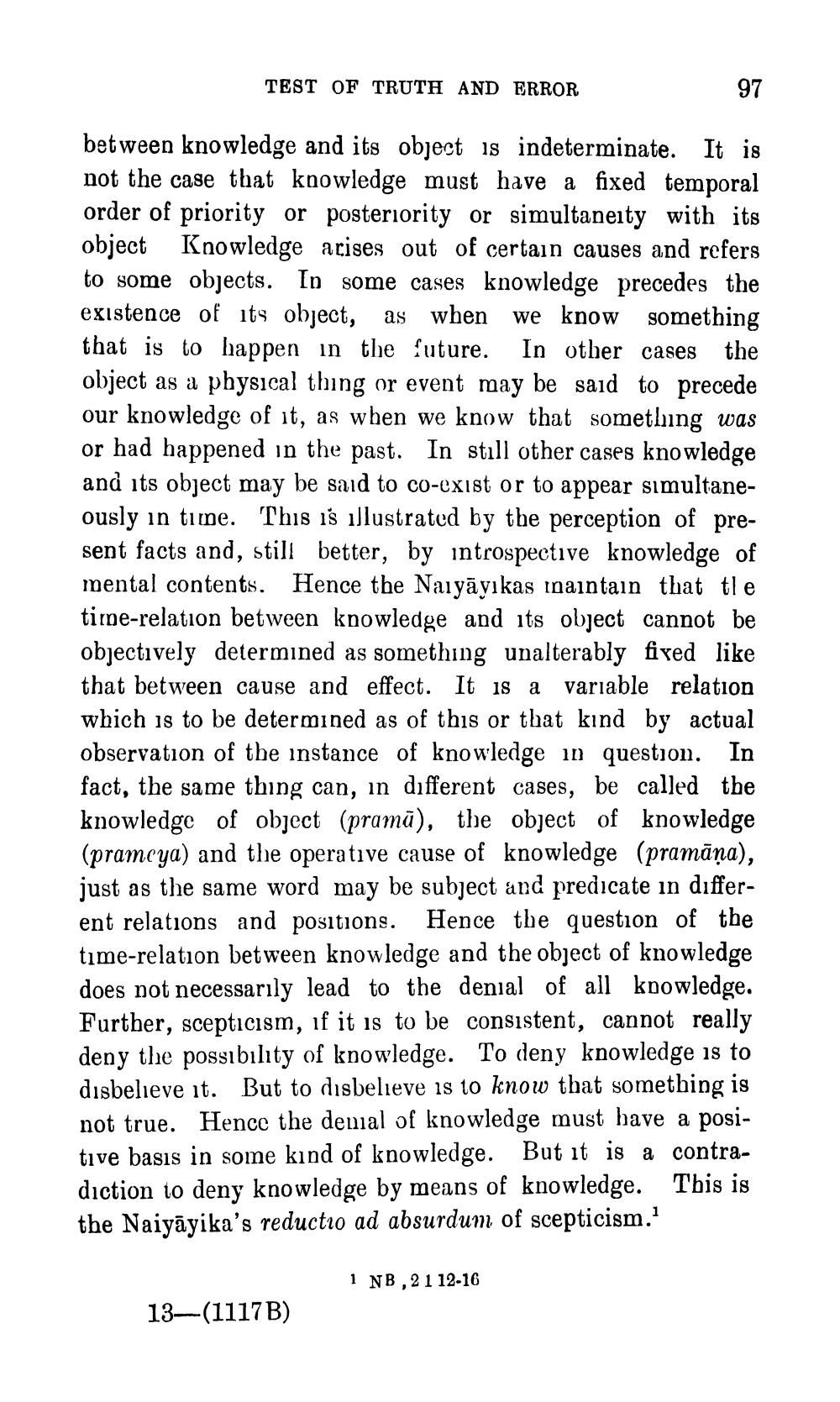________________
TEST OF TRUTH AND ERROR
997
between knowledge and its object is indeterminate. It is not the case that knowledge must have a fixed temporal order of priority or posteriority or simultaneity with its object Knowledge arises out of certain causes and refers to some objects. In some cases knowledge precedes the existence of its object, as when we know something that is to happen in the future. In other cases the object as a physical thing or event may be said to precede our knowledge of it, as when we know that something was or had happened in the past. In still other cases knowledge and its object may be said to co-exist or to appear simultaneously in time. This is illustrated by the perception of present facts and, still better, by introspective knowledge of mental contents. Hence the Naiyāyikas maintain that tle time-relation between knowledge and its object cannot be objectively determined as something unalterably fived like that between cause and effect. It is a variable relation which is to be determined as of this or that kind by actual observation of the instance of knowledge in question. In fact, the same thing can, in different cases, be called the knowledge of object (pramā), the object of knowledge (prameya) and the operative cause of knowledge (pramāņa), just as the same word may be subject and predicate in different relations and positions. Hence the question of the time-relation between knowledge and the object of knowledge does not necessarıly lead to the denial of all knowledge. Further, scepticism, if it is to be consistent, cannot really deny the possibility of knowledge. To deny knowledge is to disbelieve it. But to disbelieve is to know that something is not true. Hence the demal of knowledge must have a positive basis in some kind of knowledge. But it is a contradiction to deny knowledge by means of knowledge. This is the Naiyāyika's reductio ad absurdum of scepticism.
1 NB, 2 1 12-16
13—(1117B)




